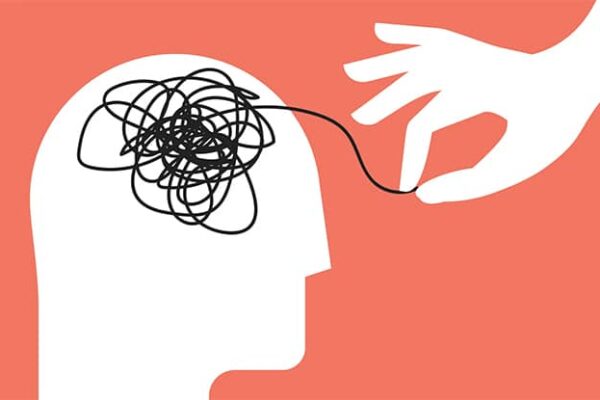Evolutionary psychology represents a unique direction of scientific thought that attempts to explain the structure of the human psyche through the lens of evolutionary processes. In the broadest sense, it is the science of how natural selection shaped our thoughts, emotions, and behavioral strategies over hundreds of thousands of years. Its key task is to […]
Phrenology: The Forgotten Theory That Changed Psychology
Phrenology is a doctrine that emerged in the late 18th century and gained widespread popularity in the 19th century. It claimed that a person’s character, abilities, and personality traits could be determined by the shape of their skull. According to phrenological theory, the brain is divided into specific areas, each responsible for certain mental functions, […]
Criminal Psychology: The Science That Solves Crimes
Criminal psychology is a science that studies the psychological aspects of criminal behavior. It investigates how people make decisions to commit crimes, what internal motives drive them, and how external circumstances influence their actions. As a branch of psychology, criminal psychology seeks to answer important questions: why do some people become criminals while others do […]
Empirical Research Methods as the Basis of Modern Psychology
Empirical research methods are one of the cornerstones of scientific knowledge. Across all scientific disciplines, from physics to sociology, these methods ensure objectivity, reliability, and verifiability of knowledge.
Instrumental Research Methods in Psychology: How Technology Is Changing Science
Technological progress in recent decades has significantly influenced all aspects of human life, including science. In psychology, as in other fields, the integration of modern technologies has allowed for a deeper understanding of the nature of the psyche, behavior, and interpersonal relationships. Instrumental research methods, in particular, have opened new horizons for analyzing human consciousness […]
Jungian Psychoanalysis: The Key to Understanding Depth Psychology
Jungian Psychoanalysis is a branch of psychology founded by Carl Gustav Jung that focuses on exploring the deep layers of the human psyche. Its central idea is that conscious life is intricately connected with unconscious processes that shape thoughts, emotions, and behaviors. Jung believed that the unconscious consists not only of personal experiences but also […]
Child Psychology: Modern Research and Practices
Child psychology is a fascinating field of science that studies the mental and emotional development of children from birth to adolescence. It encompasses a broad range of topics, including cognitive development, social interaction, emotional growth, and personality formation. In today’s fast-paced world, where life is continually accelerating, and information environments are becoming increasingly saturated, understanding […]
Reverse Psychology: Secret Mechanisms of Influencing Consciousness
Reverse Psychology is a way to encourage a person to do the opposite of what they are told or suggested. This approach is based on people’s natural tendency to resist direct pressure and maintain their freedom of choice.
Clinical Psychology and its Role in Modern Medicine
Clinical psychology plays a critical role in contemporary medicine, bridging psychological knowledge and practices with a medical approach to treating various disorders and diseases. This field not only aids in diagnosing and treating mental disorders but also contributes to enhancing patients’ overall health, their adaptation to illnesses, and quality of life.
System-Vector Psychology: A Revolution in Understanding Human Nature
System-Vector Psychology (SVP) is a modern approach to understanding human psyche and behavior, offering a unique perspective on personality structure based on the idea that each person possesses a certain set of psychological characteristics called “vectors.”
Inner Landscape: Organizational Psychology in the Workplace
Organizational psychology is an interdisciplinary field that studies human behavior, relationships, and processes within the context of organizations and the work environment. It brings together knowledge from psychology, sociology, anthropology, and other behavioral sciences to understand and improve the performance of organizations.
Experimental Psychology and Its Role in Understanding Human Nature
Experimental Psychology is a field of psychological science that uses the scientific method and rigorous experimental procedures to study human behavior, cognitive processes, emotions, and relationships. It forms the foundation of modern scientific knowledge about the human mind and plays a fundamental role in the development of psychology as an empirical science.
Depth Psychology: Revelations from the Unconscious Mind
Depth Psychology is a set of theoretical approaches and practical methods focused on the study of unconscious processes in the human psyche. This field emerged in the early 20th century, thanks to the works of Sigmund Freud, Carl Gustav Jung, and other prominent figures of the psychoanalytic movement.
Neuropsychology in Action: From Brain Centers to Psychological Phenomena
Neuropsychology is a scientific field that studies the connection between the structure, functions of the brain, and behavior, cognitive processes, emotions, and other manifestations of human mental activity. It is an interdisciplinary science that combines knowledge from neurobiology, psychology, linguistics, medicine, and related disciplines.
Humanistic Psychology: A Holistic View of the Uniqueness of Human Experience
Humanistic Psychology is an influential branch of psychology that emphasizes the uniqueness of human experience, internal motivation, and the drive for personal growth. Unlike behaviorism and psychoanalysis, which dominated the first half of the 20th century, humanistic psychology focuses on the positive qualities and potential of a person, rather than on pathologies or specific behaviors.














